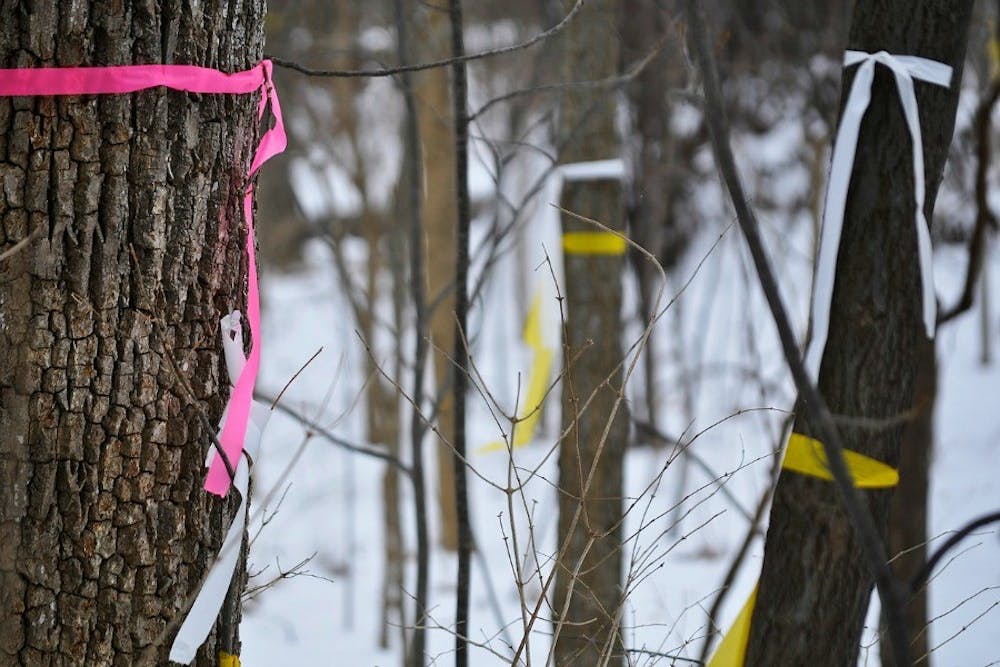The natural areas of Miami University serve as one of our most important educational assets. As graduate students and instructors of Field Botany, we wish to expand on some key points made in a recent letter contributed by Dr. David Gorchov.
We wish to express our concerns regarding how this plan will affect the education of our students, as well as many other students from other courses offered in the Biology Department. Bishop Woods stands as an invaluable teaching resource for many courses.
As the proposal currently stands, the changes to Bishop Woods will have a negative impact on the learning opportunities for Miami University students.
Field Botany is a three credit hour lab-based sprint course and part of The Global Miami Plan for Liberal Education.
Over 200 students elect to enroll in the field-based course each year. Throughout the semester, we use Bishop Woods extensively. A major key teaching opportunity of Bishop Woods are the small trees, which allow us to teach a number of botanical (e.g. leaf and twig) characteristics that are difficult for students to observe on larger specimens.
One of the aspects of the current Bishop Woods restoration plan is to remove all small trees, irrespective of the species. With the removal of all trees below a specified threshold size this valuable teaching tool will be lost. This area is novel because it offers a nearby, easily accessible, natural laboratory experience for students to explore biological concepts.
In Field Botany, these fundamental ecological concepts include succession, nutrient cycling, forest health and invasion biology.
Brian Hoven, hovenbm@miamioh.edu and Patrick Garrett, garretp2@miamioh.edu

